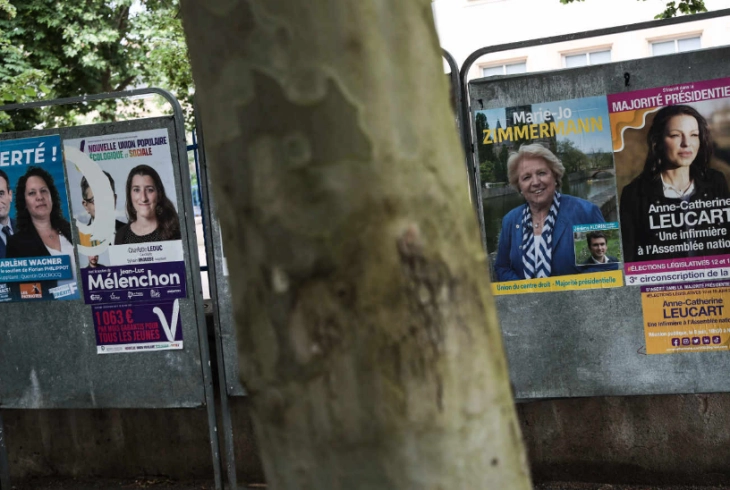Macron's absolute majority at risk as French elect new parliament
- Post By Nevenka Nikolik
- 08:50, 12 June, 2022

Paris, 12 June 2022 (dpa/MIA) - The French went to the polls on Sunday to elect a new parliament, just weeks after they chose centrist Emmanuel Macron president over far-right nationalist Marine Le Pen in a run-off race that was tighter than he anticipated.
Starting at 8 am (0600 GMT), the approximately 48.7 million registered voters were able to cast their ballots for the 577 seats in the National Assembly.
But the biggest threat for Macron in the first round of the parliamentary elections does not come from the right. It comes from left-wing veteran Jean-Luc Mélenchon, who has succeeded in uniting the fragmented left camp behind him.
As a shrewd speaker and strategist, he has distinguished himself in a campaign from which Macron had remained distant until the final days. Now Macron's absolute parliamentary majority is under threat.
In third place, Mélenchon was eliminated in the first round of the presidential election in April, despite a strong showing of 22% - but he did not admit defeat.
"Elect me prime minister," the 70-year-old promptly announced, and declared the parliamentary election to be the third round of voting to decide the balance of power in France.
France's parliamentary election is traditionally seen as a confirmation of the presidential result and is deliberately conducted shortly afterwards.
The polls see the new left-wing alliance making enormous gains.
If it receives a majority, Macron would effectively be forced to appoint a prime minister and a government from this camp.
And even with a relative majority for his own camp, Macron would have to make compromises.
In order to offer little room for attack, he waited a long time before appointing his new government and, although he is otherwise not at a loss for eloquent speeches and visions, kept his concrete plans under wraps.
The government was then put on the defensive by accusations of rape against a new minister, followed by the chaos at the Stade France during the recent Champions League final - and the gaffe-filled response from the interior minister.
It was not a good start for Macron's second term.
What is certain is that Germany and Europe can continue to count on France as a reliable partner. Macron will probably not allow any compromises on his pro-European course and the solidarity with Berlin.
France will also remain an integral part of the West's united front against Russia, the aggressor in the Ukraine conflict.
Meanwhile, a low voter turnout is expected, with only 45% to 49% of people planning to cast their ballots, Brice Teinturier, director of the polling institute Ipsos, told Le Parisien newspaper on Saturday.
"For the French, the presidential election is the decisive vote," Teinturier said. They would hardly see any benefit in reshuffling the cards in the parliamentary election.
Nevertheless, Macron cannot rely on this, because confidence in the government is low. When it comes to safeguarding the purchasing power of voters amid rising costs - Mélenchon's core issue - it is acting too slowly from the people's point of view, the Ipsos boss said.
There has been relative silence regarding Le Pen, who won more than 40% in the run-off election for the highest office of state.
The reason is not a sudden change of mood in France - the right continues to have a lot of support - but the peculiarity of the parliamentary election.
In contrast to the presidential election, local roots count here, and that is not one of Le Pen's strengths.
The 577 parliamentary seats are allocated according to a complicated first-past-the-post voting system. In the end, only the votes for the winner in the respective constituency count, meaning that only a moderate increase in seats is predicted for Le Pen.
In some French overseas territories, voting had already started on Saturday because of the time difference. The second round of the parliamentary election is on June 19







